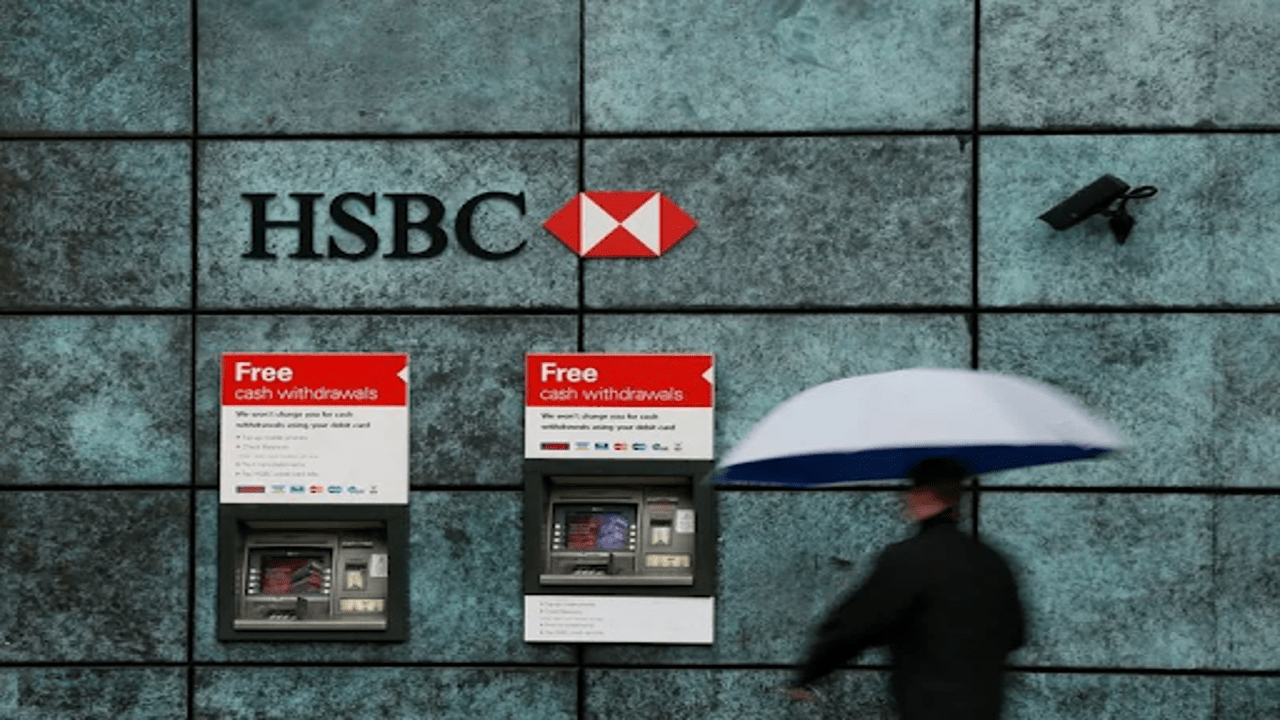
A man is seen walking by an HSBC bank branch in London's financial district. Reuters
HSBC Holdings reported a strong profit in the third quarter, outpacing forecasts, thanks to increased income from its wealth management and wholesale banking divisions. The bank’s shares in Hong Kong rose by 3.7%, reaching HK$71.60 ($9.21), the highest since 2018, following the announcement of these results and a new $3 billion share buyback plan.
HSBC’s net profit for the quarter rose by 10% to $8.5 billion, surpassing market expectations of $7.6 billion. This growth comes as HSBC benefited from fewer rate cuts than anticipated, which bolstered its financial outcomes. Alongside this, HSBC announced a $3 billion share buyback plan, adding to the $6 billion in buybacks revealed earlier in 2024.
CEO Georges Elhedery introduced a strategic overhaul to streamline HSBC’s operations, with a focus on reducing expenses and increasing efficiency. The bank aims to restructure by merging certain departments and separating its operations into Eastern and Western regions, a move that will be fully detailed in February. This plan marks a significant step by Elhedery, who recently stepped into the role of CEO, to adapt HSBC to the current low-interest-rate landscape while reducing costs.
Elhedery emphasized the immediate implementation of these restructuring plans, noting that HSBC’s newly appointed leaders are expected to bring a fresh approach to its global business operations. Analysts praised the bank's earnings performance as "solid," yet highlighted the importance of understanding the potential cost savings from the restructuring. Michael Makdad, a senior equity analyst at Morningstar, shared that investors are primarily interested in how the new CEO’s initiatives will translate into tangible cost reductions.
Despite changes to interest rates, HSBC has maintained its return-on-equity target in the mid-teens for both 2024 and 2025. The bank acknowledged rate fluctuations and uncertainty but reassured shareholders of its commitment to these financial goals.
As part of its ongoing strategy to reward shareholders, HSBC announced a third interim dividend of 10 cents per share, adding to the 41 cents already distributed earlier in the year. This decision reflects HSBC’s aim to balance its growth ambitions with shareholder returns.
The bank's revenue grew by 5% over the previous year, reaching $17 billion for the quarter ending in September. The volatile market environment positively impacted customer activity, particularly in wealth management. HSBC’s performance in foreign exchange, equities, and global debt also contributed significantly to its growth.
HSBC’s U.S. and European competitors are showing similar resilience. Barclays recently reported profits exceeding expectations, indicating potential stability in the financial sector even with anticipated rate cuts. As global central banks begin to signal a shift away from higher interest rates, HSBC and its rivals are preparing to adapt to this changing landscape.
In conclusion, HSBC’s latest results reflect robust financial health and the bank’s readiness to implement major operational changes under new leadership. Investors are keen to see how these initiatives will shape the bank’s future performance in an evolving economic environment.















